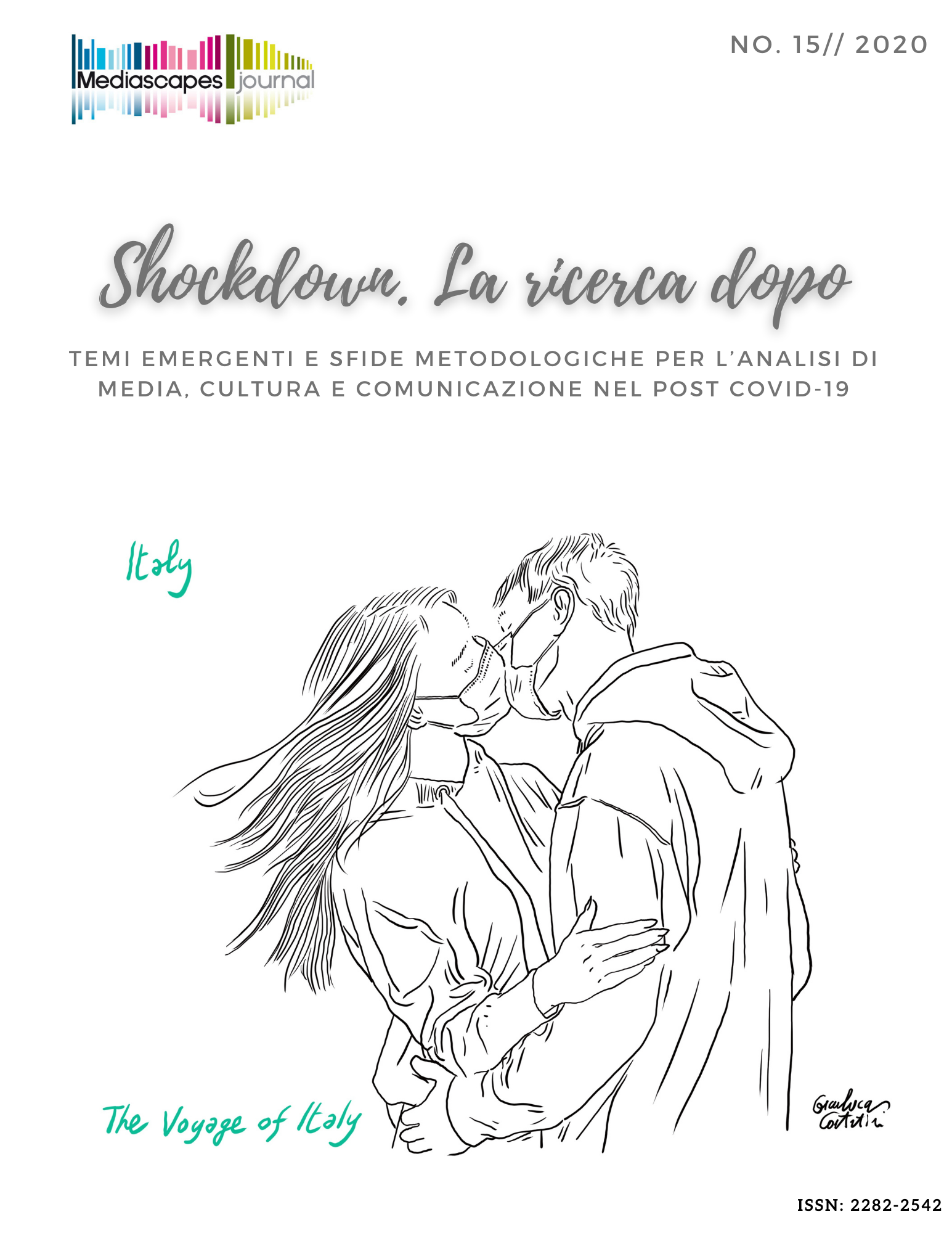Viralpolitik. Pandemia, populismi e altre infodemie
Parole chiave:
Virality, isolation, memes, immunology, populism, politainmentAbstract
After years of euphemistic use of the term, virality returns forcefully to disrupt our lives, traumatically bringing us back from the virtual, which we referred to long ago, to the most tragic real that escapes us and we cannot manage. Since the viral has been transformed from an adjective to a noun (the video, the content, the meme), we have forgotten the anxiety, anguish and panic that can cause true virality, or rather biological virality, then increased from media and social virality. In the so-called "new normal" of this neo-viral age, imposed by the problematic coexistence with Covid-19, and in post-pandemic society, unprecedented political cleavages and new fractures arise in the already extremely jagged field of public opinion. It is therefore reasonable to expect that the medical-scientific sector projected into politics, living a series of divisions, between center-right and center-left and between majority and opposition and, perhaps, also the genesis of further original categories and oppositions (for example, that between a "populism" and an epidemiological "reformism"). In the "Covid era", the immune and epidemiological paradigm has become a fundamental element of public life, and provides an important key for interpreting a collective mentality undergoing profound transformation, which seems to have found first and foremost behavioral models of reference but also to level of imagination in this umpteenth declination of the figure of the technician with specialist skills. The virologist, the infectious disease specialist and the epidemiologist (and, to a lesser extent, the pulmonologist) have in fact identified the "anchors" and the reference characters of the TV and social media of the current stage of the age of public democracy.
##submission.downloads##
Pubblicato
Come citare
Fascicolo
Sezione
Licenza
Gli autori che pubblicano su questa rivista accettano le seguenti condizioni:
- Gli autori mantengono i diritti sulla loro opera e cedono alla rivista il diritto di prima pubblicazione dell'opera, contemporaneamente licenziata sotto una Licenza Creative Commons - Attribuzione che permette ad altri di condividere l'opera indicando la paternità intellettuale e la prima pubblicazione su questa rivista.
- Gli autori possono aderire ad altri accordi di licenza non esclusiva per la distribuzione della versione dell'opera pubblicata (es. depositarla in un archivio istituzionale o pubblicarla in una monografia), a patto di indicare che la prima pubblicazione è avvenuta su questa rivista.
- Gli autori possono diffondere la loro opera online (es. in repository istituzionali o nel loro sito web) prima e durante il processo di submission, poiché può portare a scambi produttivi e aumentare le citazioni dell'opera pubblicata (Vedi The Effect of Open Access).


